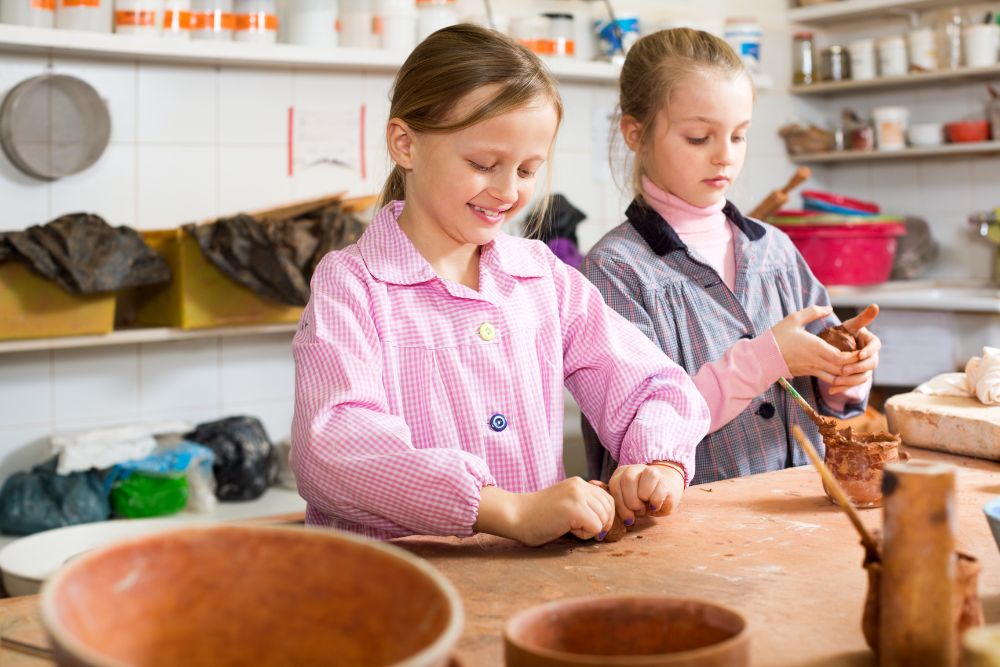Pros and Cons of Teaching Your Kids How to Cook When They Are Young
Introducing cooking skills to children at a young age can be a fun and educational experience. Kids will develop beneficial life skills and independence while getting some valuable time for bonding and flourishing together. But it will require plenty of patience, supervision, and time.
This article will discuss the pros and cons of introducing cooking skills to children early on, to help decide what will work best for each family.
|
|
Pros of Teaching Kids to Cook When They Are Young
1. Fosters Independence and Sense of Responsibility
Teaching kids to cook instills a sense of independence and responsibility in young children. As they learn to cook meals on their own, they will develop a higher sense of self-confidence which will benefit them in many other aspects of their life.
2. Promotes Healthy Eating Habits
Kids who learn to cook tend to make healthier food decisions than those who do not. They will understand all elements that go into cooking a meal and will be less likely to refuse to try new foods and vegetables.
3. Promotes Math and Reading Skills
Many cooking skills involve reading the recipe and measuring the ingredients, which lends itself to strengthening math and literacy skills in a real-world application. Kids will work with fractions, quantity, and reading step-by-step instructions.
4. Creates Quality Family Time
Cooking together as a family allows families to spend quality time with one another. Cooking together provides good opportunities for bonding through conversation, laughter, and teamwork in a relaxing environment.
5. Encourages Responsibility and Patience
Cooking involves work and care—from washing fresh produce to cleaning up afterward. Kids learn how effort and patience are required to finish the task of preparing foods. They learn to take the time to follow through on a task rather than rushing in and out.
6. Prepares Them to Be Adults
Introducing children to cooking helps instill values to care for themselves early on in their lives—leading to independence. Kids who know how to cook are more likely to have home-cooked meals, save money, and feel confident when they start living independently.
7. Fosters Creativity
The act of cooking encourages them to play with flavors, textures, and even the presentation of their food. This freedom allows kids to break old mental barriers and view food as a form of creative expression.
8. Decreases Picky Eating
When kids are involved in making their meals, they are often more likely to eat what they made. Kids tend to eat less if they did not help or if the food is presented in an unfamiliar manner, so ridding the kitchen of that barrier may make mealtime less of a chore.
Cons of Teaching Kids to Cook When They Are Young
1. Time and an Extra Load of Patience
Learning to cook is a longer process that means you are also teaching your kids the role of the culinary experience in addition to the steps of the recipe. Teaching kids involves more explaining, monitoring closely, and typically cleaning up extra mess!
2. Safety
There are all sorts of potential dangers in the kitchen including hot surfaces, sharp knives, heavy-duty kitchenware, and glass. Parents and caregivers carry the responsibility to supervise carefully. That stress—especially if something could have been prevented—can be a heavy mental load.
3. More Mess for Them to Learn
Kids are often messy when they learn something new. During the cooking experience, things can get spilled, flour may go everywhere, and the counter might become overwhelmed with toppings. After a long day of work, this can become frustrating!
4. Possible Frustration for the Actual Parents
Parents may struggle with time management or find it difficult to manage their own expectations. If the cooking experience doesn’t go as planned, it may lead to added stress or tension during what was supposed to be quality time.
5. Possible Interruption of Meal Schedule or Evening Routine
Cooking with a young one can often take longer than expected. In the rush to get dinner on the table, time can slip away. This can throw off mealtime or the evening schedule—especially on busy weeknights.
6. Limited Attention Span
Younger children might wander off mid-recipe, skip steps, or jump ahead without understanding. These distractions can impact the quality of the meal and test everyone’s patience.
7. Not All Kids May Want to Help
Some kids simply may not be interested in cooking. Forcing participation can backfire, causing resentment or negative associations with the kitchen. Parents should be mindful of the child’s interest and readiness.
8. Consistent Supervision Even After Kids Learn
Even once kids start to grasp kitchen skills, they will still need supervision. Parents will need to remain nearby for safety and support, which can be challenging when balancing other responsibilities.
Conclusion
Teaching your kids how to cook when they are young has so many benefits—from building confidence to encouraging healthy habits. But it also requires time, patience, and a willingness to deal with inevitable messes and mistakes.
The key is to keep the experience fun. Start small with age-appropriate tasks and let them enjoy the process. This effort can lead to countless moments of joy, learning, and bonding—and yes, maybe even those three-hour family dinners that become cherished lifelong memories.
Kids are kids. Giving them freedom with structure in the kitchen brings some of the same joy we may have felt when we first learned to cook. The kitchen becomes more than a place to make meals—it becomes a place for growth, laughter, and unforgettable moments.

